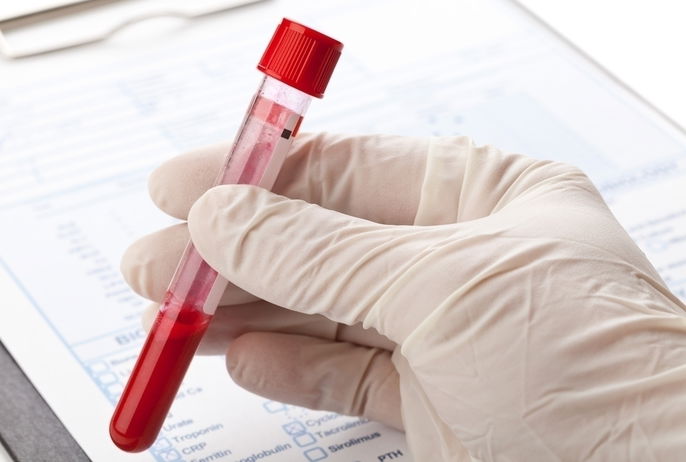Lipase is a digestive enzyme that is produced mainly in the pancreas. Its function is to break down dietary fat into smaller molecules, so that they can be absorbed by the intestine. The mouth and stomach also produce some lipase to help facilitate digestion.
The lipase blood test is normally ordered to investigate for pancreatic disorders, but it can also be helpful for assessing for Crohn's disease, kidney failure or tumors in the gastrointestinal system.
The lipase blood test is usually ordered together with an amylase blood test to help confirm diagnoses. Read more about what amylase levels mean and why it is ordered.

What is the lipase blood test for?
The lipase blood test is used to evaluate lipase levels circulating in the blood. It is ordered if there are any suspicions for pancreatic diseases, such as pancreatitis, as the pancreas is responsible for producing the majority of lipase. Inflammation of the pancreas can lead to increased lipase levels, which can remain elevated for prolonged periods.
The lipase blood test can also be beneficial for diagnosing other conditions, such as Crohn's disease, kidney failure or tumors, as lipase levels may be altered with these situations.
When it is ordered
The lipase blood test is normally ordered by the doctor when the patients presents signs and symptoms suggestive of digestive and/or endocrine changes. Some symptoms that may prompt this test include:
- Fever
- Severe abdominal pain
- Fat in the stool
- Weight loss
- Nausea and vomiting
To confirm a diagnosis, the doctor normally orders lipase with other tests, such as a urine test, as conditions that alter lipase levels can also alter other findings.
What results mean
A normal lipase level is any value under 60U/L. However, reference values may vary from lab to lab, depending on where and how the test was done.
High lipase levels
Lipase is considered to be high when results are over 60 U/L. This can occur with the following conditions:
- Acute pancreatitis
- Celiac disease
- Perforated peptic ulcer
- Pancreatic pseudocyst
- Pancreatic cancer
- Obstruction of the pancreatic duct
- Bowel obstruction
- Acute appendicitis
- Inflammatory bowel disease
- Crohn's disease
- Renal insufficiency
- Hepatitis C
- Cystic fibrosis
- Lymphoma
- Chronic liver disease
- Eating disorders, such as anorexia and bulimia
- Alcoholism
- Use of medications, such as codeine, morphine, methacholine or cholinergics
Acute pancreatitis is the main cause of high lipase and, in these cases, lipase levels can be up to 10 times higher than normal, rising up to 8 hours after a pancreatitis attack and remaining high for up to 14 days after the attack. To confirm a diagnosis, the doctor may recommend an amylase test and imaging tests.






























